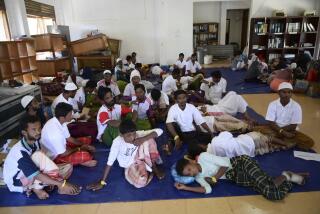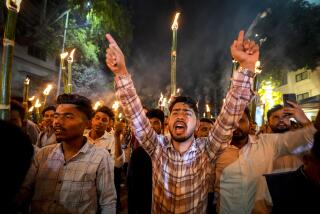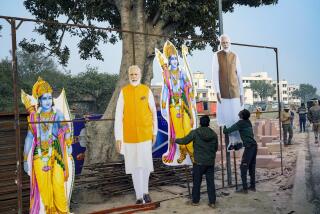These Rohingya refugees actually want to return to Myanmar. The difference is they’re Hindus
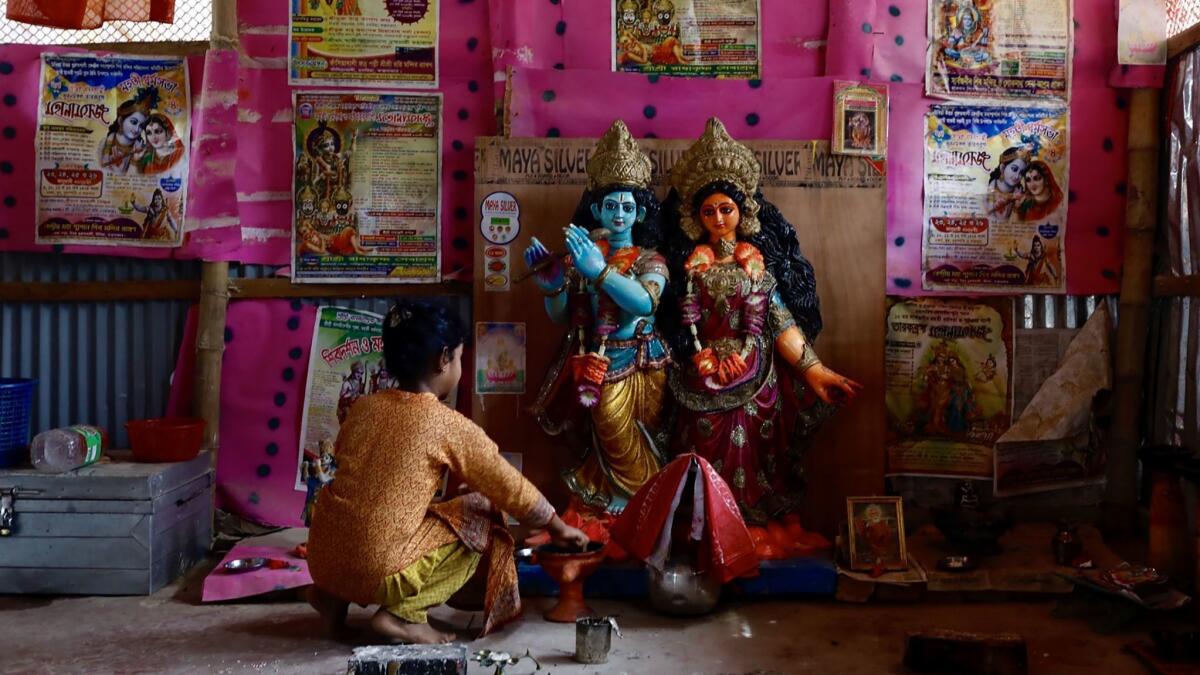
In the world’s largest refugee camp, where 1.1 million Rohingya Muslim refugees reside, 105 families have been stranded — caught in a war that was not theirs.
Unlike the rest of the refugees, these families are Rohingya Hindus — a small minority within a minority that had lived peacefully for generations in Myanmar’s western Rakhine state alongside Muslims and members of the Buddhist majority.
In the violence that engulfed Rakhine beginning in August 2017 — when Rohingya Muslim militants attacked police checkpoints and the army responded by killing or maiming thousands of Muslim civilians — 99 Hindus were killed and burned in mass graves. The Hindu villages were attacked by members of a militant group called the Arakhan Rohingya Salvation Army, or ARSA, that was also responsible for the attacks against the police.
Hindus who survived fled in the only direction they could: across the Naf River and into Bangladesh’s sprawling refugee camps meant for Rohingya Muslims, the very people they blame for the violence against them.
Fifteen months into the crisis, the Hindus’ minority status has sharpened: While Rohingya Muslims have categorically rejected a plan that would repatriate the refugees, Hindus are ready to return to Myanmar, a view that has placed them at odds with the vast majority of people in the camps.
In May 2018, the United Nations struck a deal with the Myanmar government under which refugees would be allowed to return to Rakhine, although not necessarily to their original villages, many of which have reportedly been razed or occupied by Buddhists. The deal was widely criticized for not meeting the Rohingya Muslims’ main demands: a restoration of citizenship rights that they have been denied for decades, freedom of movement and guarantees of safety.
Within hours, the Hindu families were packed and ready to go. But many Muslim refugees protested the terms by striking from jobs they hold as teachers, health workers, translators and builders in the camps. Human rights group assailed the plan as unworkable.
The United Nations refugee agency has shelved the plan — a welcome move for the majority of refugees, but one that has pushed the Hindus to the edge of their endurance.
“We were told the repatriation process will begin Nov. 11,” said 50-year-old Jushna Pal, a mother of five. “We were told to be ready. Our bags have been packed since then.”
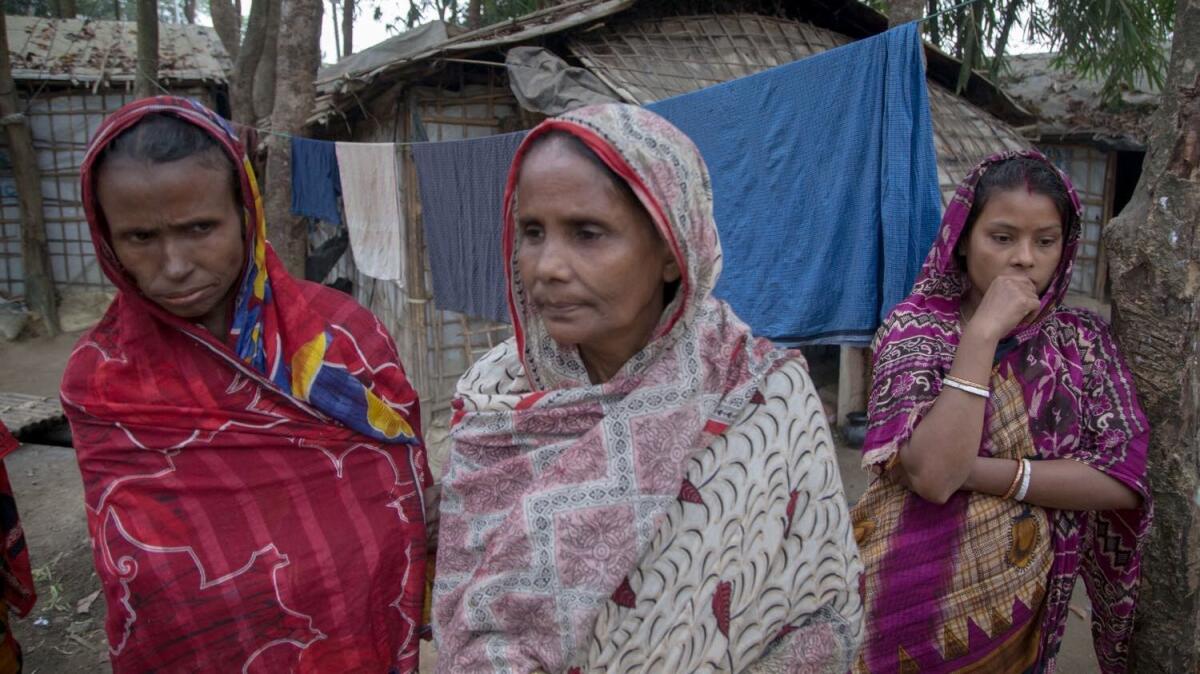
Muslims make up the vast majority of the more than 1 million ethnic Rohingya who once lived in Rakhine. Although many families trace their ancestry in Rakhine back several generations, Myanmar regards Rohingya Muslims as Bangladeshis who migrated there illegally and has denied them citizenship, freedom of movement and other basic rights, and frequently subjected them to state-backed violence. Hindus, by contrast, still hold citizenship in Myanmar and enjoyed greater rights there.
On Aug. 25, 2017, the same day that militant attacks on police checkpoints left 12 officers dead, masked assailants attacked the Hindu village of Fakirabad in Rakhine’s Maungdaw township. An Amnesty International report found that the attackers “robbed, bound, and blindfolded [villagers] before marching them to the outskirts of the village, where they separated the men from the women and young children.”
The report described the attackers as members of ARSA and said they later executed 53 Hindus, starting with the men. Another 46 Hindus were believed to have been killed in an attack in another village, Amnesty International said.
Far more widespread massacres occurred in Muslim villages, leading the U.N. to declare the Myanmar military campaign as a “textbook example of ethnic cleansing.” More than 800,000 Rohingya fled across the border to Bangladesh, joining refugees who had fled earlier rounds of violence and swelling the populations of the makeshift camps along the southeastern border.
In Bangladesh, the more than 400 Hindu refugees, most of them children, live in a settlement known as Hindu Camp just outside one of the 27 refugee settlements that make up the sprawling Kutupalong and Balukhali complex. The Bangladesh government segregated the Hindus, who live under around-the-clock security in the only camp to have a constant police presence.
Families living in Hindu Camp are suspicious of outsiders and cagey with journalists. They detest their Rohingya Muslim neighbors, blaming them for their losses, for spawning the ARSA group and for opposing the repatriation plan.
The animosity is mutual: Many Rohingya Muslims accuse Hindus of benefiting from the violence, alleging that Hindu families that stayed behind took property and livestock that had belonged to Muslims. In September 2017, weeks after the mass arrivals into the camps, two Hindus were killed and nine admitted to hospitals after violence broke out between the refugees.
“It is terrifying to live like this,” said Shishu Sheel, a 32-year-old leader in the Hindu Camp. “We are under threat because we don’t blame the Myanmar government for the violence. It goes against the testimonies given by Rohingya Muslims.”
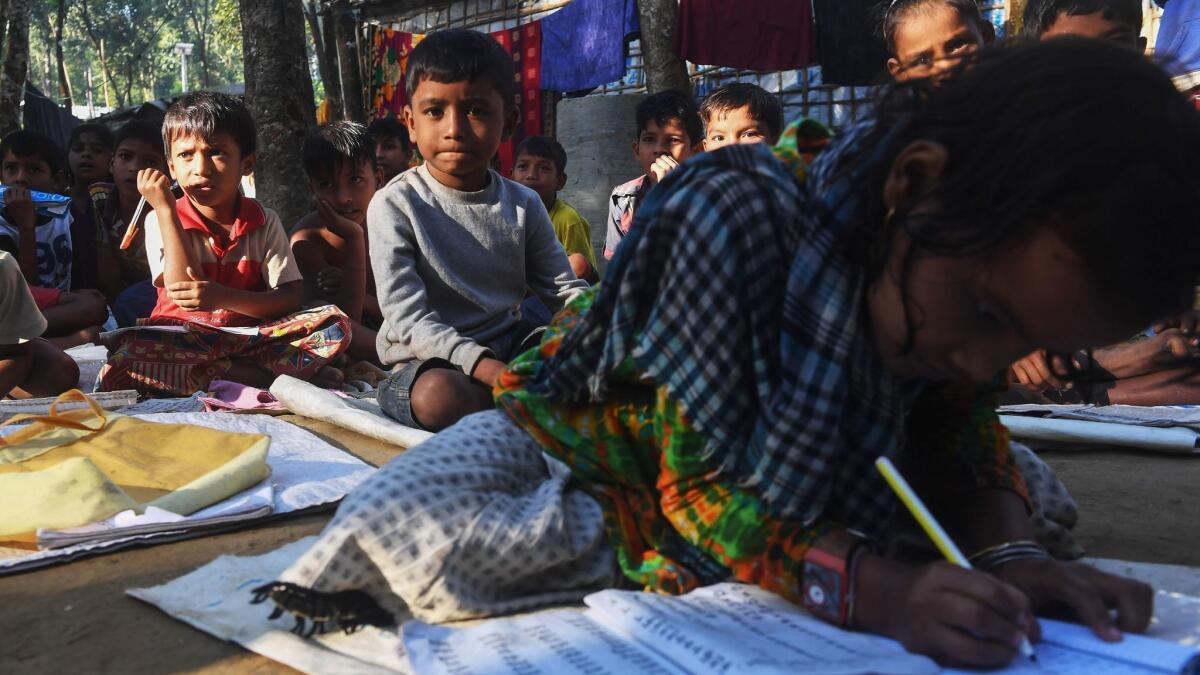
Bangladesh’s Refugee, Relief and Repatriation Commission, which is responsible for the camps, said repatriating Hindus and not Muslims is not an option.
“We treat all refugees the same way and will not be prioritizing repatriation of the Hindu refugees over Rohingya Muslims,” said Shamimul Huq Pavel, the commission official who oversees the Hindu Camp.
The Hindu families have appealed to the Indian government for help, but so far New Delhi has provided only humanitarian aid and words of concern. Prime Minister Narendra Modi’s government has also taken a tough line regarding Rohingya Muslims who fled to India, describing the estimated 40,000 refugees as a security threat and deporting a dozen of them back to Myanmar despite the threats against them.
Officials in India’s foreign ministry did not respond to requests for comment.
Sheel said the Hindu refugees expected more from Modi, a nationalist whose party has built a strong voter base by emphasizing the supremacy of India’s majority religion.
“India is a land for all Hindus. Mr. Modi is a Hindu. Why is he not helping us?” Sheel said.
The Hindu families say they are growing increasingly desperate and that if help doesn’t come soon, they will consider trying to sneak back across the Naf River into Myanmar, despite their fears of leaving their camp and of being shot or captured at the border by Myanmar soldiers who might mistake them for Muslims.
“We cannot live like this any longer,” said 35-year-old refugee Madhuram Pal. “The Muslim families are being prioritized, but no one is telling us when we will be sent back.”
Krishnan is a special correspondent. Times staff writer Shashank Bengali contributed to this report from Singapore.
More to Read
Start your day right
Sign up for Essential California for news, features and recommendations from the L.A. Times and beyond in your inbox six days a week.
You may occasionally receive promotional content from the Los Angeles Times.
